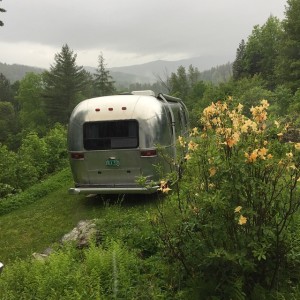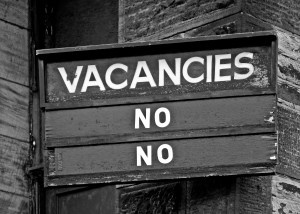I think that there are, in general, people who are buyers and people who are renters. If you are predisposed to settle down, wish to establish roots in a community and inclined to invest and build equity towards a future, you already have an answer to this question. If you have not already bought, then you are probably just waiting until the right property comes along. If you like to go with the flow and land where the winds blows you, then maybe renting better suits your lifestyle.

For me, I knew when I first moved to the Mad River Valley that I was going to stay here for a long time. The holdups were simple things – I was young, had plenty of time to get serious, and wasn’t sure whether I wanted a house, a condo, or a piece of land to park my Airstream on (I don’t own an Airstream, but I really want one).
But it was also about money. While real estate in the Waitsfield, Warren and Fayston was relatively affordable, interest rates were outrageous – 9.5% at the time. It was, in fact, FAR cheaper to rent, even if I held no equity in that property. I could rent an apartment for $600/month whose equal would cost me $1200/month to buy. The numbers didn’t work. It was a temporary solution, but lower interest rates stagnant real estate growth and soaring rental rates over the past 5 years have changed that dramatically.
Build a Nest Egg

If you think of a home as an investment, rather than a place to live, you start to see it. Saving money is very hard. Rent is on the rise, health care is costing everyone more and more, and if you have kids (or are planning for them), child care costs a small fortune. Being able to nest-egg a few hundred dollars a month is getting harder and harder, while the ever-increasing rent you pay is padding someone else’s nest egg, not yours. According to bankrate.com, the median income earning family has $668 left at the end of the month after paying their bills, but that the same median family actually saves nothing. In other words, if you are in the median, you have enough to pay your bills but not to go out for dinner, buy things for yourself AND still have money left to put in the bank.
A $280,000 median home in the Mad River Valley is a 3-4 bedroom cape on a 2 acre lot in a small, 5-home subdivision. Sounds nice. To purchase it generally requires a 10% down-payment, or $28,000 along with good credit and a reasonable history of receiving a paycheck. An FHA loan can be obtained for as little as 3% down, but for this exercise we will assume you have a job, were able to save for a few years and make the 10% downpayment, avoiding the cost of private mortgage insurance.
At a realistic fixed-rate of 4%, the $252,000 note on that $280,000 home (minus the $28,000 downpayment) over 30 years will cost around $1202/month – or $370/month less than the average rent in Vermont on a three bedroom apartment (according to MyApartmentMap.com -an internet search engine for apartment hunting, the average three bedroom apartment rental in Vermont is $1572/month). That’s a savings of nearly $4500 per year. Put half of that savings annually towards the principle on your loan (and the other half towards your taxes) and you will pay your 30-year mortgage off in 20 years (because it is illegal in Vermont for banks to charge a prepayment penalty on a mortgage). Assuming a 2% increase in home value per annum, the$17,000/year investment (12 mortgage payments and 2 extra payments per year towards the principal on the loan) over 20 years, has netted equity on that investment of $392,000. Assuming you missed no payments and stayed on track, you can cash out that investment to the tune of nearly $400,000; thats your nest egg. If you rented for the same 20 years you will have invested nearly $400,000 in rent with zero equity, assuming your rent didnt go up in 20 years.
Fix your rate
Assuming you already feel good about saving $370 per month, imagine how you will feel in ten years when your mortgage payments are stable while rental rates in your neighborhood have soared by to nearly $2200/month (at a 4% rate per year estimated by RealtyMogul.com). This is a reality brought about by the tendency of millennials to stay in rental properties longer than their parents. It is simple supply and demand.

Pick your poison
In the truest sense you can live where you want or live where there is a rental available. The “housing problem” in central vermont is a real problem. Finding safe, healthy, affordable rental properties, in desirable neighborhoods is hard and getting harder. Vacancy rates in the four largest demographic regions of Vermont stand at 1% – where healthy is considered 5%. This means renters have little choice about where they live and who they have as neighbors. And if they do find a rental property, they are less inclined to leave under any circumstance, unless something better becomes available, which frequently means staying in a less than ideal circumstance as an alternative to being without a home, and spending much of your spare time looking for a better place to live. And when they you DO find that better place will face the potential of losing their security deposit in order to secure the more desirable property – making the prospect of saving money even more difficult.
Quiet Enjoyment
Sounds nice, right? Under Common Law in our country, landowners are entitled to the Quiet Enjoyment of their property. This means living in peace and quiet, and not being subjected to offensive noises and odors imposed upon them by others. Visitors and persons who do not hold an interest in the property are not entitled to the quiet enjoyment of their property and are frequently at odds with neighbors and landlords. While legally a leasehold is an interest in a property, the aforementioned pressure to find alternative housing will frequently place tenants in precarious (albeit illegal) conflicts with landlords and neighbors. And more often than not, landlords will allow leases to expire while continuing to collect rent, making eviction far easier than if there were a current lease. It may ultimately require litigation to establish your rights.
Discrimination
While there are specific rules and legal requirements placed upon landlords to prevent discrimination, it is rampant and hard to prove. While a landlord may disqualify your application because you have a pet, it is illegal to disqualify you based upon any of the protected classes in this country. Yet it happens every day. Whether you are a single mother or a family of four, landlords may prefer a smaller family group that will put less wear and tear on their property. Low supply and high demand means that landlords can pick and choose who they will rent to and easily rationalize their decision. It’s still illegal, but proving it is another more complicated matter.
Be a part of a community
Although many do not know much about their community when they move in, owning a home is one of the primary tenants of participation. It is something that binds you to and establishes you within a community. It commits you to that community over others, and exposes you to all the things that are part of that community. It tries you to the decisions made by your local select board, school board and PTO. It connects you to the community soccer team, and baseball team. It connects you inextricable from the noisy neighbor who needs to be communicated with rather than moved away from, or the kid who falls off their bike at the end of your driveway and needs a band-aid. But most importantly, it provides you with a place that is yours for as long as you choose to call it home, without outside pressure or influence; a community to come home to at the end of every day. And isn’t that the best reason of all?
 Recently Sold
Recently Sold